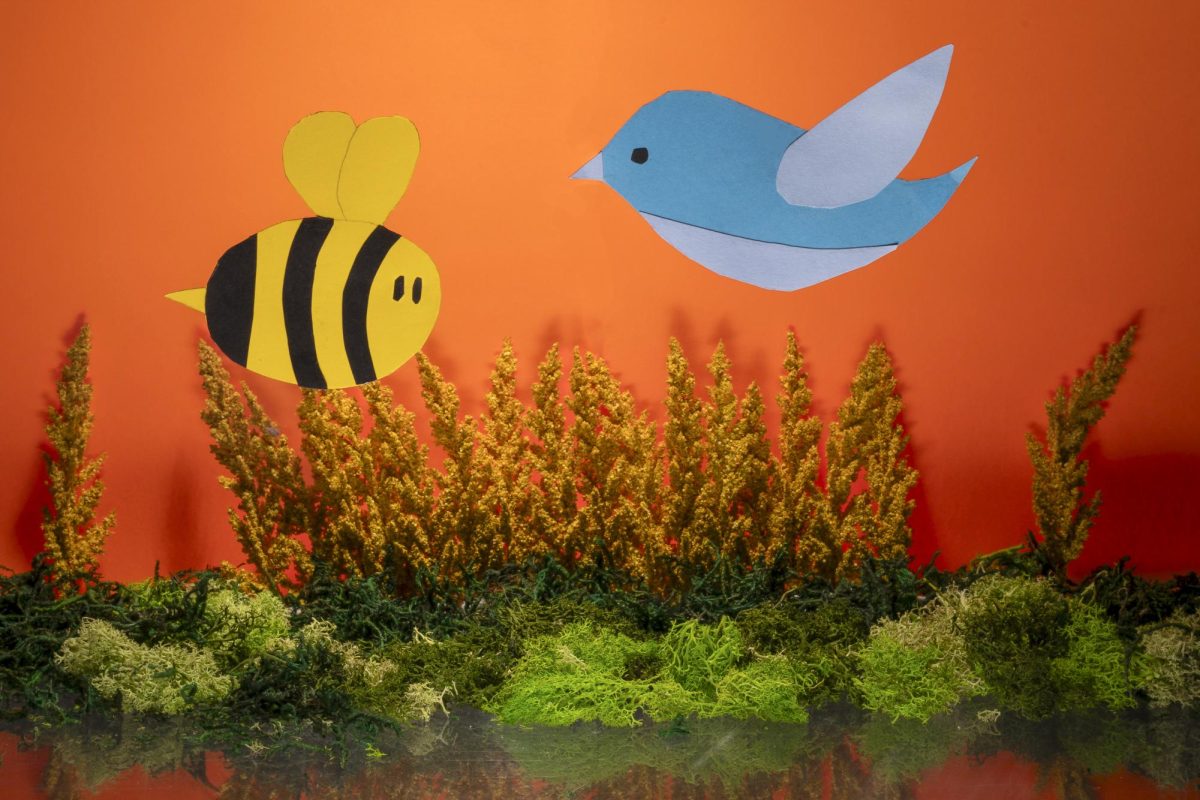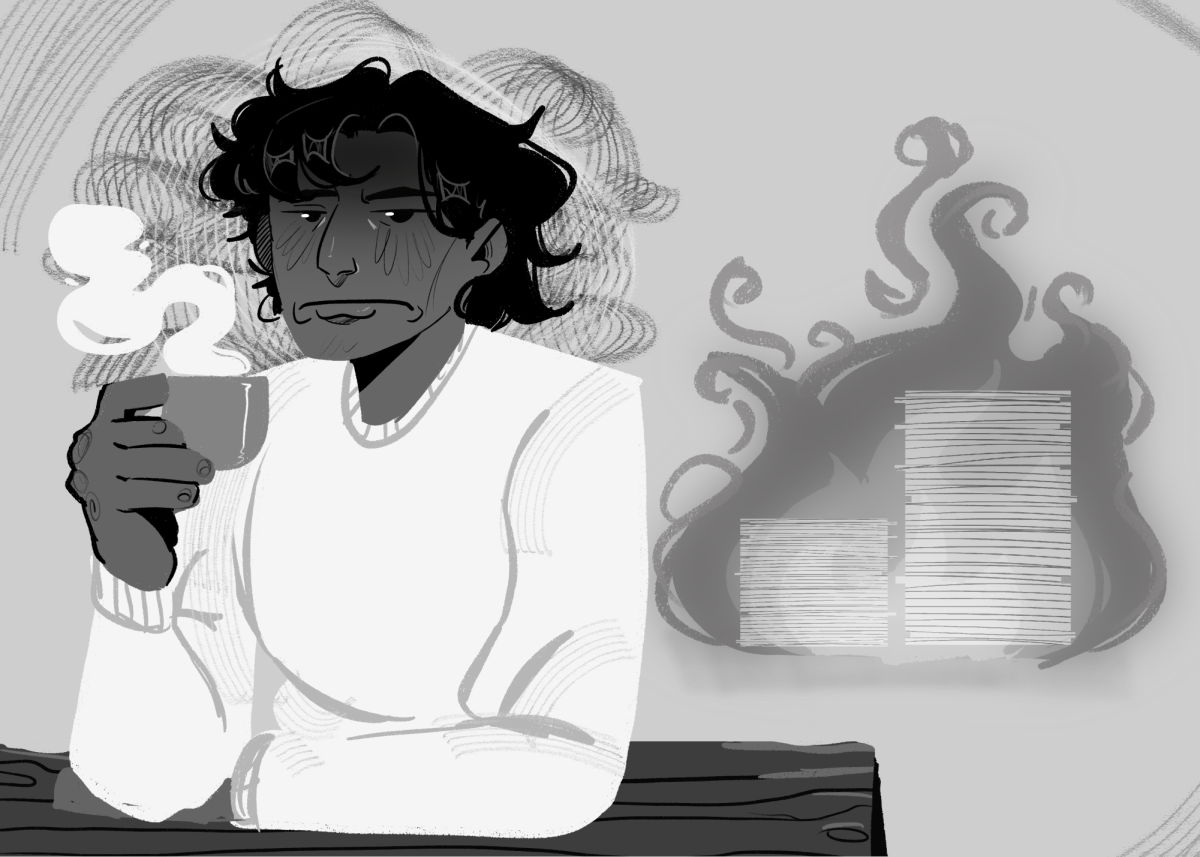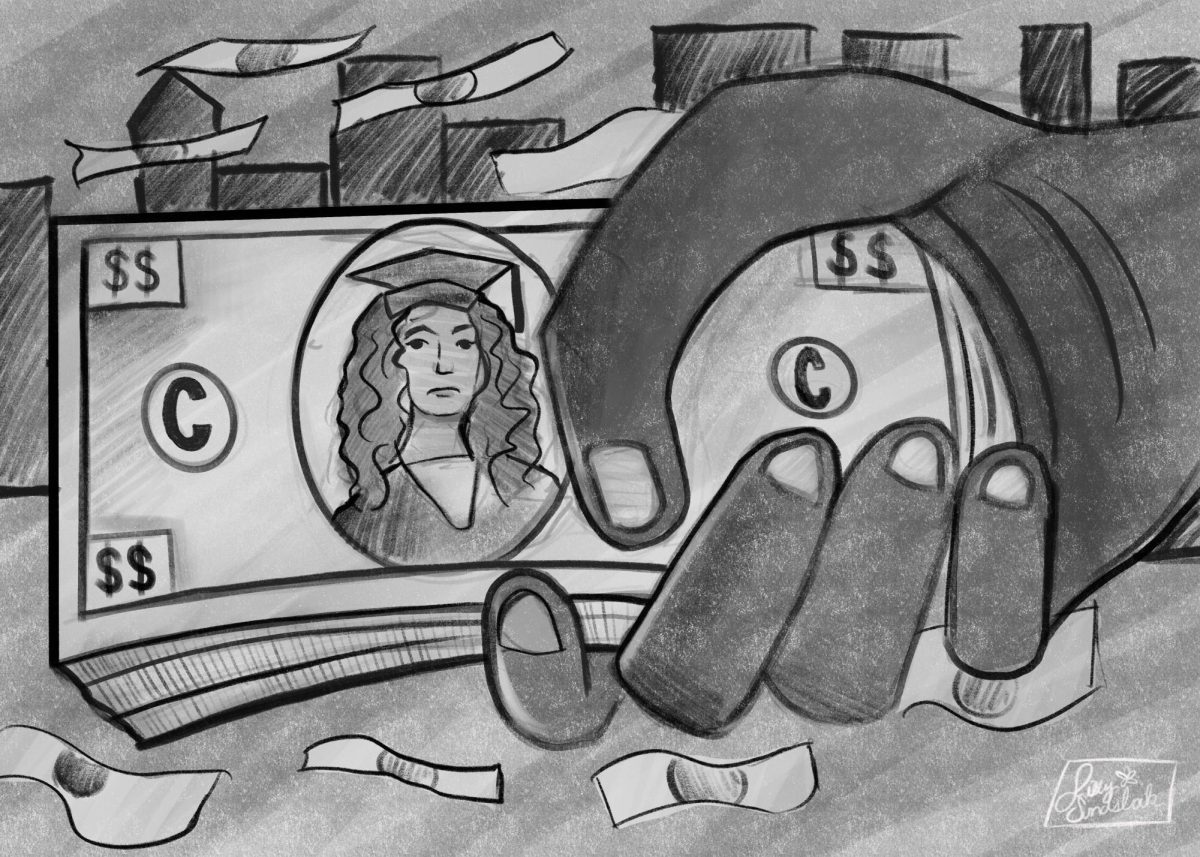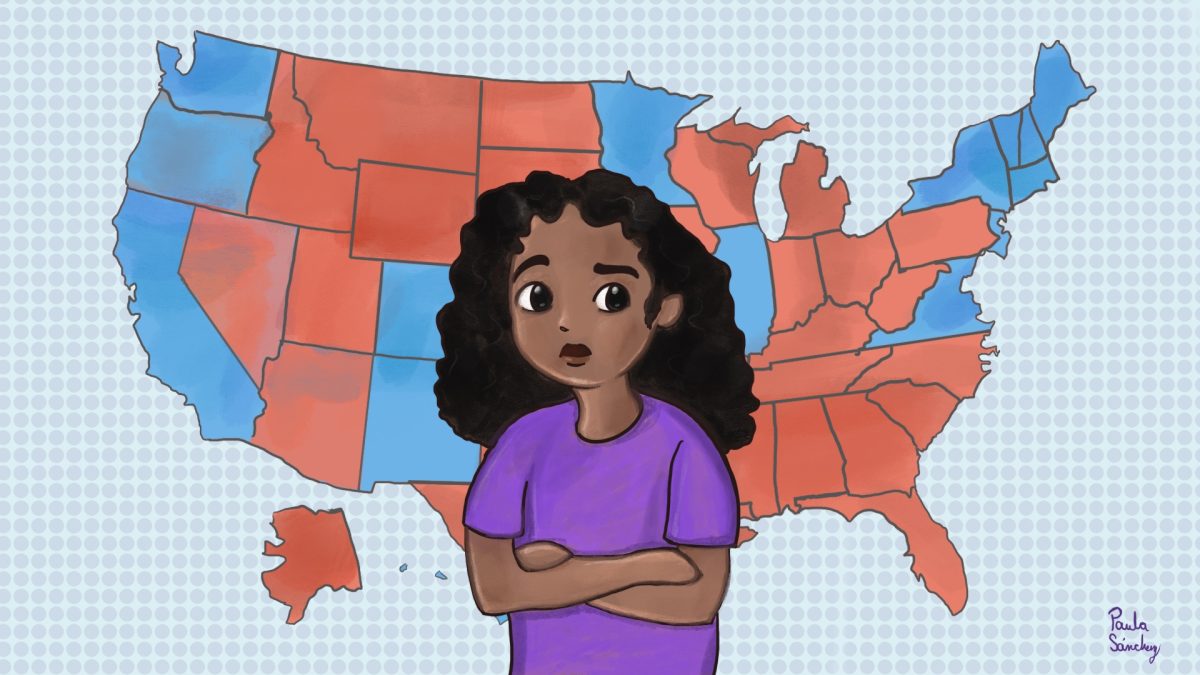THE SEX ISSUE
In Western culture, “the talk” is seen as a rite of passage where parents or guardians are given the chance to guide their children through the intricacies of sex and everything that falls under it. However, how this conversation is approached and covered differs significantly in other cultural contexts.
The Chronicle sat down with six international Columbia students individually and asked them what “the talk” is and how it was approached in their culture. First-year film and television major Sơn Lê Quản from Vietnam and graduate student of arts management Qianyi Wang from China both said that they were familiar with Western idea of “the talk.”.
Graduate student of arts management Xin Huang and sophomore arts management major Feihong Guo, both from China, were not familiar with the English phrase.
In most Asian countries, discussions about sex education typically fall into two categories: either parents have “the talk” with their children, or they do not discuss the topic at all. In Vietnam, “the talk” is usually brief and to the point rather than a formal sit-down conversation. In China, whether or not parents have “the talk” with their children depends on their traditional views. In South American countries, “the talk” is given, but it is not as structured as in Western countries. That is why first-year major Manuela Lopes from Brazil was aware of the concept. So was first-year music major Rebeca Urzúa, who is from Mexico.
The Chronicle: In your culture, do you do the practice of giving and receiving “the talk?”
Quản: “I guess we do, it depends on certain families. There are families that don’t give their children ‘the talk’ since most of the time they are too busy, but there are families that do. The way we do it is very straightforward in my experience, in Vietnam, it’s more like a brief thing, and something once in a while your parents bring it up, and you’re like, ‘damn, okay, that’s cool.’ In my family, we didn’t discuss it as a big topic; [it was] more like sudden reminders to use protection if you ever decide to engage in sexual intercourse.“
Wang: “No. My parents, specifically my father, never talk about sex with me. Just me and my mom, no public talks, and she just tells me, ‘If you have sex with others, just make sure you use protection like the condom.’ Most of my friends didn’t have ‘the talk’ as well. They would just search on the internet and learn online. My mom thought that young people would explore and be very curious about this,that’s why she talked to me about things like this.”
Huang: “Not for my family. I would say, in general, most of the Chinese parents would not do ‘the talk.’ It wasn’t forbidden, but I just felt like they wanted to protect me somehow. When I was little, my mom would watch TV, and there were kissing scenes; she would ask me to close my eyes, or she would just switch the channels. That’s for my family specifically because I know some of my friends’ parents are very open. They’re very comfortable talking about this. But I know that most of the traditional Chinese families don’t talk about this at all.”
Lopes: “It’s a concept that exists in Brazil, but it’s not as formal as it is in America. We have the talk when your mom is cooking and she’s not looking at you and she goes ‘oh, and by the way, you’re getting kind of old now’ and she just brushes it off and you’re just like ‘okay, I don’t want to talk about that’ and just leave. It’s not a full on conversation.”
Urzúa: “We do, but not enough and not good enough. When I first heard about what was having sex or what it meant having sex like, I didn’t really hear it from my parents. I didn’t hear it from my school. I heard it from my friends. At 11 years old, I had my first sex talk in school. My mother told me ‘you’re gonna get this sexuality class that we’re paying for for one week,’ and they explain it to you but they omit important factors.”
Guo: “It depends. I would understand those disciplines, those principles of safe sex, even without having a conversation. With my parents, I didn’t have ‘the talk’ with them like ‘you have to have safe sex’ or ‘you should talk to others in a more appropriate way’ but when I first had my experience at 15 years old, I told my mom. She said ‘it’s totally fine and the only thing you want to make sure is you keep it clean.’ I guess some parents really don’t care about what their children are doing, they just say ‘don’t get yourself killed, don’t get yourself caught, and don’t get [into] anything stupid or too serious.’”
The Chronicle: Are there any pressing issues in your culture that make “the talk” more challenging?
Quản: “They strongly believe in heterosexual marriage and divorce and all that. So when it comes to being gay and all that, it’s mainly a cultural thing. We have been working under the model that male plus female equals a relationship for a long time, and so when the concept of sexuality was introduced to us, it became confusing. And some people are just afraid of what that is because I have aunts and uncles, and some people that I know would call being gay a social disease. I don’t think ‘the talk’ is a taboo thing. The issue is more like the connection between the parents and children.”
Wang: “I think what makes it harder to talk about it is because of the age difference. If I talk with my friends, I feel like it’s okay. If I talk about it with other people like my mom, my dad, or like my teachers, I think their mindset works differently. I think it’s awkward. It’s more of like a generational gap where they’re more conservative and traditional. They’re older, and what they have received in our culture is more reserved.”
Huang: “The dating culture is definitely different from here. Most people in China think they can’t have sex before marriage. It’s more open now, but before, they’re not gonna do that unless they have been dating for years. It’s just awkward to talk about it to your parents because they’re older and have more conservative views.”
Lopes: “Brazil is a laic country, so we don’t have a religion for the whole country. We don’t have a specific religion, but my country is really conservative and Catholic. So whenever we talk about sex with adults, there’s always this shame involved with it. The religious part also plays out in issues with sexuality,I never learned about gay sex from any adult ever. And if you bring it up, it’s taboo.”
Urzúa: “Maybe they way parents still think about how to have ‘the talk’ with their children. In Latin America, it’s really common to have a huge number of women that would get pregnant at an early age. I think that’s because we don’t really receive ‘the talk’ from our parents, more like from the school, and it’s not good enough. Those things are like changing with time, but I think there’s still some embarrassment when talking about it with parents.”
Guo: “I would say the issue is more about education because I know some friends who have done it before they even turned 18. We don’t have a certain course or a class that talks about sex and sexual relationships.”
The Chronicle: How do schools or educational institutions in your country address sex education, if they do at all?
Quản: “I’d say it’s not a very common thing. We mainly focus on academics, but when it comes to sexual education, it’s once in a while. A doctor would come to the school and would talk about it briefly. They don’t go deeper into it unless there are certain chapters in classes we take, like Biology, discussing STDs, STIs.”
Wang: “We only had education about periods and not sex. At our elementary school and junior high school, we had a lecture about periods and reproductive systems, but the girls and boys were taught separately. We didn’t know what boys’ bodies would look like or how it worked, and the boys didn’t learn about the girls either. They were teaching just the science part in class, and I think they would censor it. They didn’t talk much about sex as a process.”
Huang: “Well, it was part of the curriculum, but it’s only one lecture for all people. More on the educational side. It was more like a biological thing, but not like the ‘how to.’ In middle school, we were taught about it separately. I didn’t know what the boys were talking about. I think it should be taught in the same place, but I also understood why it was separated because some Chinese boys are very childish when talking about period stuff; they would laugh, making the girls uncomfortable.”
Lopes: “It depends on the school and it depends if it’s public or private, because private schools usually go more in depth. I was in a private school, I had the privilege to be. They had presentations and they would tell us how it works, not only the biological part of it, but the process. They talked about abuse and everything so that was nice. But in public schools, that doesn’t happen much.”
Urzúa: “In this one-week class we had, they explained how it happens, physically and emotionally. They kind of try to teach us how to use condoms but there are still some lacking information that they missed. They didn’t really talk about sexually transmitted diseases. They show you what a condom is, but they never really teach you how to put it on a penis. They never talked about abortion as well because for them, it was something you cannot just say back then.”
Guo: “It was more biological. It was written in the textbook, like the reproductive system was written. It’s there because they know it’s science, it’s the fact, but they never talked about the process. I did see free condoms, we had it in campus and local pharmacies, it was in a box that said ‘free condoms for you to use’ so they just gave that and left everything else to us.”
The Chronicle: How do you think discussing sex and relationships impact international students in Western countries?
Quản: “There will be big cultural shocks. There are things that you might not really understand. Let’s say you came here, and many people talk about how they had ‘the talk,’ or they had this and that, and you just think to yourself, ‘Well, that either played out very differently,’ or ‘That didn’t happen at all.’”
Wang: “At first, it actually felt embarrassing. It’s kind of embarrassing to hear other people talk about it openly. Now, I think it’s okay to talk about it. I am willing to take part in the conversations. I have a younger sister, and she’s only eight years old. Although I’m not sure what the appropriate age is to talk about it, if she asks, I will tell her. I want her to know more than what I knew when I was her age.”
Huang: “I was like, ‘I want to join them,’ but I don’t really have experience. So, I cannot relate to it, but I will remember how they talk about it. I wanted to be part of them because I felt like I lacked those experiences even though we were the same age.”
Lopes: “Sex is a pretty much known thing in my culture. Everyone talks about it, mainly the young people, but nobody is ashamed to talk amongst each other, just not with adults. For me, it wasn’t much of a shock to talk about sex when I came here.”
Urzúa: “The first day, I was at this welcome party and I remember they were giving out free condoms in a table set up. And I remember I was like ‘whoa, I’ve never seen that before’ because in my country, it would be considered vulgar. I really appreciate that they were giving free condoms because they’re expensive and it’s the first resource you need to use for safe sex.”
Guo: “Personally, I came here and I was very shocked because I haven’t heard words like that. My roommates, for example, are all American, and I would very much like to join their conversations to be one of them, but it’s hard for me because I know it’s not going to be the same as my experiences.”








